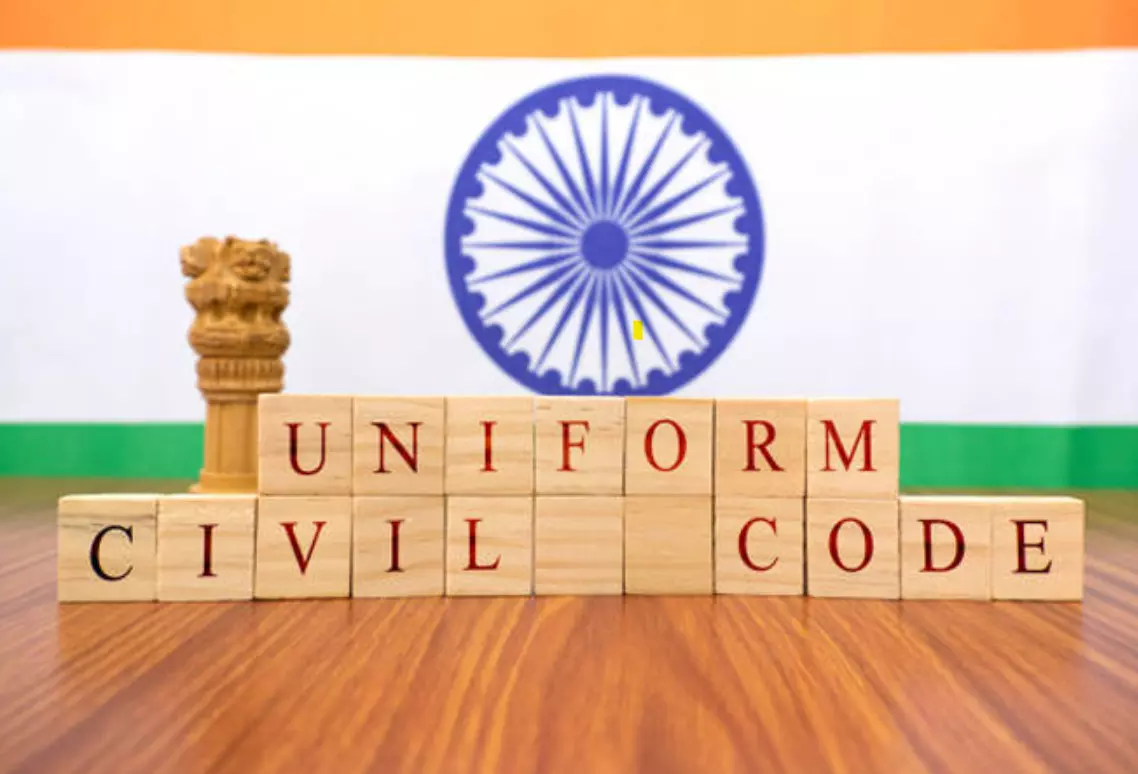Introducing a reference
Amid unabating contentions over the Uniform Civil Code, the Law Commission can bring greater clarity by formulating a model code; writes SM Khan & Shahryar Khan

Public opinion makes law but sometimes law also makes public opinion - The Law Commission of India may come forward with a model UCC to seek public opinion
The 22nd Law Commission of India had on June 14, 2023, sought views from the public on the issue of the Uniform Civil Code, which has led to an outpour of views and suggestions from the general public, and the Commission has received almost 50 lakh responses.
When we talk about the Uniform Civil Code in our country, four of the articles of the Constitution of India, 1950, come to the mind immediately.
Article 44 of the Constitution of India, 1950, confers upon the state to endeavor to secure for citizens a Uniform Civil Code throughout the territory of India.
Article 25 of the Constitution of India, 1950, guarantees to all persons equally the freedom of conscience and the right to citizens to freely profess, practice and propagate religion, subject to public order, health and morality. The former is a directive principle of state policy which is only a guiding principle, a moral force and not justiciable, while the latter is more important and a fundamental right which is enforceable in a court of law. However, Article 25 of the Constitution of India, 1950, confers on the state the power to make any law regulating or restricting any economic, financial, political or other secular activity which may be associated with religious practice.
Article 51 A of the Constitution of India, 1950, casts a duty on every citizen of India to promote harmony and the spirit of common brotherhood.
Article 13 of the Constitution of India, 1950, states that any law which takes away or abridges the rights conferred by Part III of constitution of India, shall be void. It states that Law includes customs and usages. Therefore, any Uniform Civil Code will have to undergo the test of judicial scrutiny in the context of Article 13 of the Constitution of India, 1950.
We have to discuss the need and desirability of UCC in the light of these articles, and also the report of 21st Law Commission of India which said that it is neither desirable nor feasible at this stage to have a Uniform Civil Code. But what is that stage when we will be ready for a Uniform Civil Code, or will that stage never come as it has not come yet in the 75 years of our independence?
The problem about a Uniform Civil Code is that the customs and laws differ from religion to religion, region to region, and it will be difficult to ascertain which communities’/religions’ customs and traditions will be used in the Uniform Civil Code. The Uniform Civil Code involves a whole gamut of issues concerning all the six major religions which are prevalent in the country, and also about the customs, usages and traditions of Tribes, people living in northeastern and southern regions of India. India is a multi-religious, multi polar, multi lingual country, and known for diversities. The people here are very sensitive about their customs, traditions and religious practices. The tribal leaders, All India Muslim Personal Law Board, Catholic Bishops Conference, and Shiromani Gurdwara Parbandhak Committee have already raised objections on the Uniform Civil Code.
The chief ministers of two Northeastern states have already met the Central leadership, and expressed their reservation about the UCC. Article 371A and Article 371C prohibit the legislature from making laws for the states of Nagaland and Mizoram, respectively, which are violative of their customs and traditions, unless approved by their state legislature. Therefore, before passing a uniform code with respect to these states, the government will first have to amend the said articles of the Constitution of India. It is an all-India issue which involves large number of people belonging to different religions and following different customs and traditions.
There are certain laws that have been passed by the Parliament, like Special Marriage Act, 1954, and Indian Succession Act, which have been made optional for the people belonging to different religions. However, the people use these laws only when it is desirable in their own interests. It is also observed that there are various subjects on which a uniformity is there, and which is scrupulously followed by all the people as it serves their purposes, for example, succession in agriculture properties, marriages through courts, maintenance of divorced wife etc.
The hurdle being faced at present for a Uniform Civil Code is that there are prominent voices, including legal luminaries and religious leaders, who are saying that there is no model UCC on which a debate can take place, and only once a model UCC is set out in the public, the same could be considered. Therefore, it is advisable that the Law Commission of India should come forward with a model UCC on various subjects, and put it in public domain to invite views and opinion of people. If the model UCC is welcomed by a majority of people belonging to different religious groups, then it should be adopted initially on a voluntary basis to see its acceptance. Thereafter, it may be made mandatory for the people to follow, as it is said that public opinion makes law but, sometimes, law also makes public opinion.
SM Khan is Vice President of India Islamic Cultural Centre, former Press Secretary to the President of India, and Director General in Ministry of Information and Broadcasting; Shahryar Khan is Advocate, Delhi High Court. Views expressed are personal



